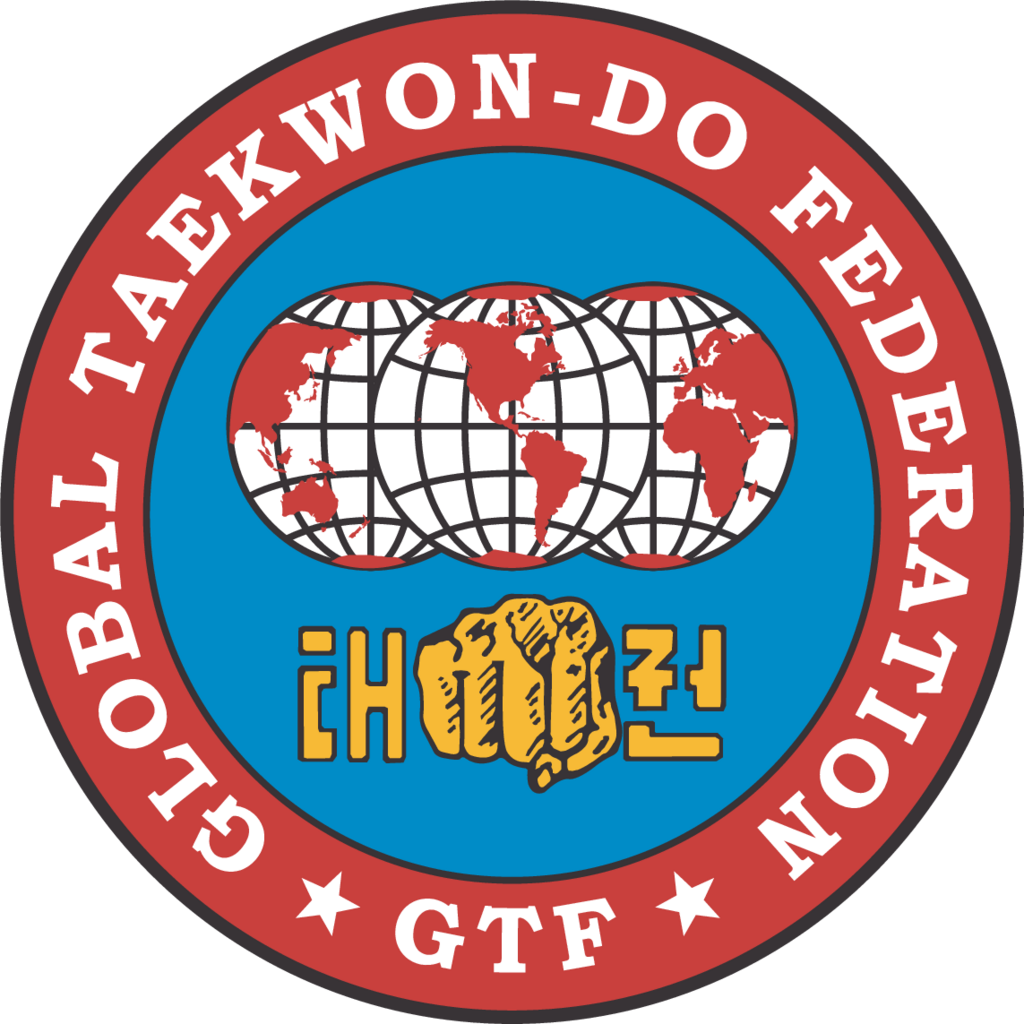
TKD History
National sport and traditional martial art of Korea. Was initially developed for military purposes, then was adapted for civilian use, its creator is a gene. Choi Hong Hi
The name Taekwondo was established in 1955.
Taekwon-Do is derived from such systems struggle, which for centuries were Subyokta, Kwonbaek, byon, Tagyok, Taek Kyon


Thus, taekwondo may be loosely translated as "the way of the foot and the hand." The name taekwondo is also written as taekwon-do, tae kwon-do, or tae kwon do by various organizations.
Organizations
ITF

WTF


GTF
The Belt Colours and their meanings
White
Signifies innocence, as that of the beginning student who has no previous knowledge of Tae Kwon-Do.
Yellow
Signifies earth, from which a plant sprouts root as the Tae Kwon-Do foundation is being laid.
Green
Signifies the plant's growth, as Tae Kwon-Do skills begin to develop.
Blue
Signifies heaven, toward which the plant matures into a towering tree as training in Tae Kwon-Do progresses.
Red
Signifies danger, cautioning the student to exercise control and warning the opponent to stay away.
Black
Opposite to white, therefore signifying maturity and proficiency in Tae Kwon-Do. Also indicates the wearer's imperviousness to darkness and fear
The above colours have not been randomly chosen. They are in fact, steeped in tradition. Colours of Black, Red and Blue denote the various levels of hierarchy during the Koguryo and Silla Dynasties in Korea.
The degrees of Black Belt are divided into three distinct classes. The 1st through 3rd degree are considered the novice stages of Black Belt. Students are still merely beginners in comparison to higher degrees.
At 4th degree, the student crosses the threshold of puberty and enters the expert class.
7th to 8th is composed of the Tae- kwon-Do Masters - the elite who fully understand all the particulars of Taekwon-Do, mental and physical with the 9th degree signifying the pinnacle of what is usually a life time of dedication to the art.
A black belt with a white ribbon running the length of it on one side indicates a junior (under 16 yrs.) Black Belt exponent.
TKD Belt System

TKD uniform (dobok)


Dojang
Regardless of the location where the training takes place at the time of his duration can change it to dojang, for which the specific way behavior (Rules For dojang)
1. At the entrance and exit, follow nod
2. Avoid unnecessary conversations, keep your concentration and focus attention
3. Do not eat, drink, smoke
4. Do not wear shoes
5. Without the permission of the instructor is not allowed to perform any exercise
6. Any comments or questions to the instructor guided before and after training


Since 2000, taekwondo has been one of only two Asian martial arts (the other being judo) that are included in the Olympic Games. It became a demonstration event at the 1988 games in Seoul, and became an official medal event at the 2000 games in Sydney.

Popularity of TKD
Today, over 70 million people in 188 countries practice Taekwondo. 4 million of them are black belters.
Taekwondo is famed for its employment of kicking techniques, which distinguishes it from martial arts such as karate or certain southern styles of Kung Fu .

Tenets of Teakwondo
Tenets of Taekwondo should provide guidance to all students of this martial art.
Courtesy
Showing courtesy to all, respecting others, having manners as well as maintaining the appropriate etiquette at all times, both within and outside the dojang (도장) (designated training area)
Integrity
Although it may be similar, this form of integrity takes on a more wider role then defined in the common dictionary. In Taekwondo, integrity means not only to determine what is right or wrong but also having the conscience to feel guilt if one has done wrong and to have the integrity stand up for what is right
Perseverance
One will persevere time and time again until they have achieved a result which is adequate towards what one was trying to achieve
Self-control
This means to not only have control over one's physical acts, but also their mental thoughts and actions
Indomitable spirit
To have indomitable spirit means to have the courage to stand up for what you believe in, no matter what odds you are up against, and to always give 100% effort in whatever you do.

The end :-)
tkd
By Łukasz Szewczak
tkd
brief note about tkd in progress...
- 2,226

